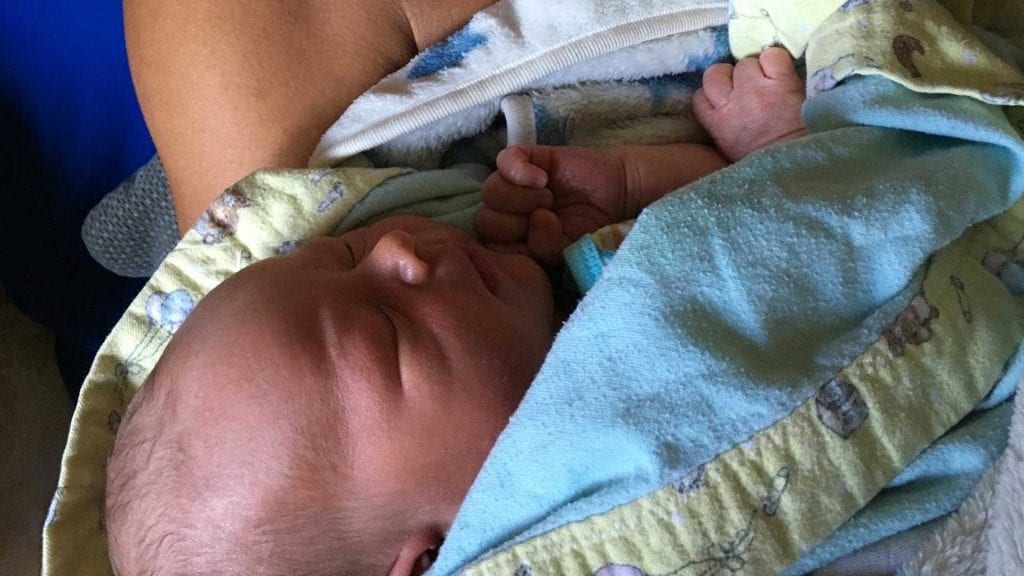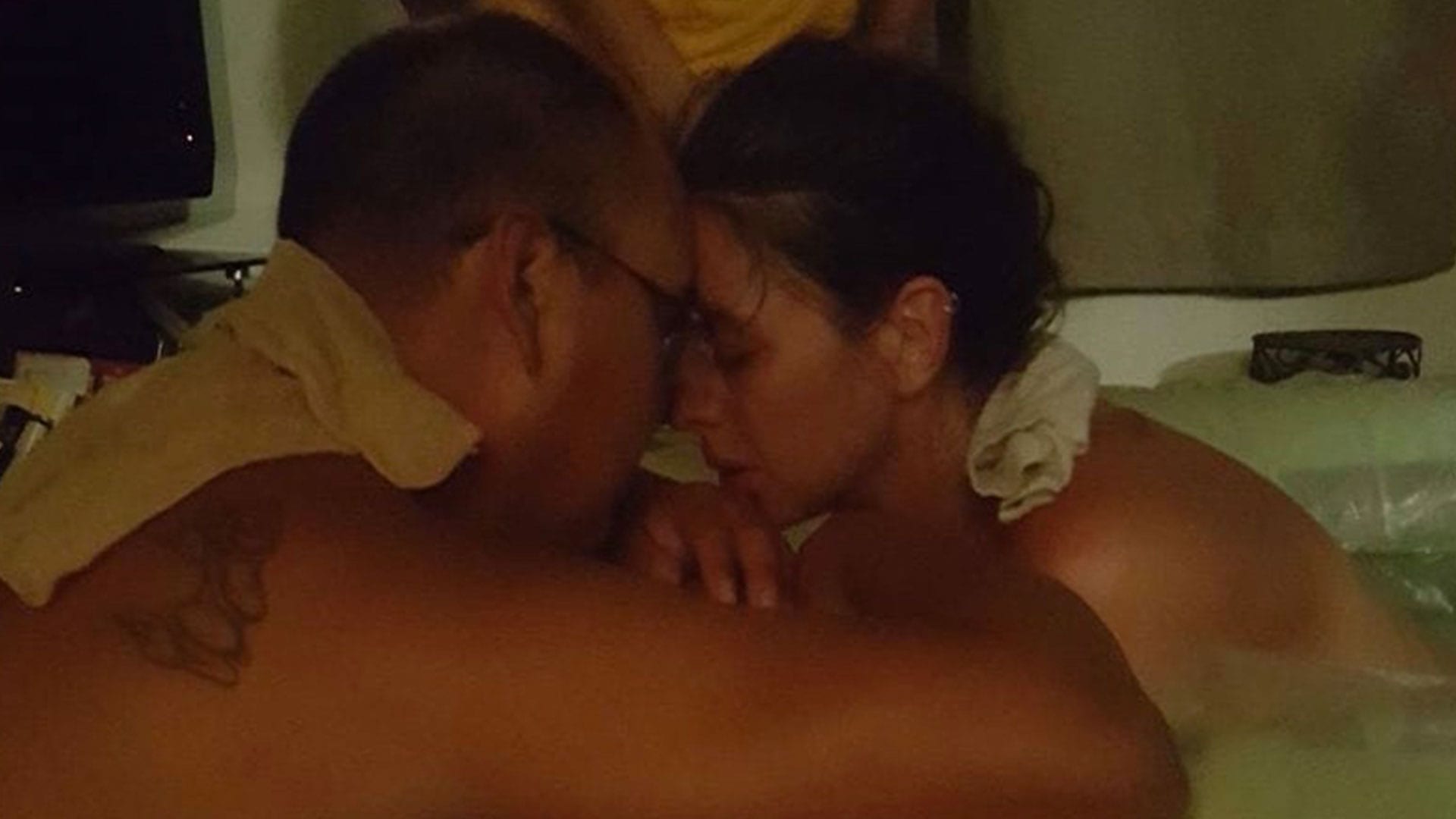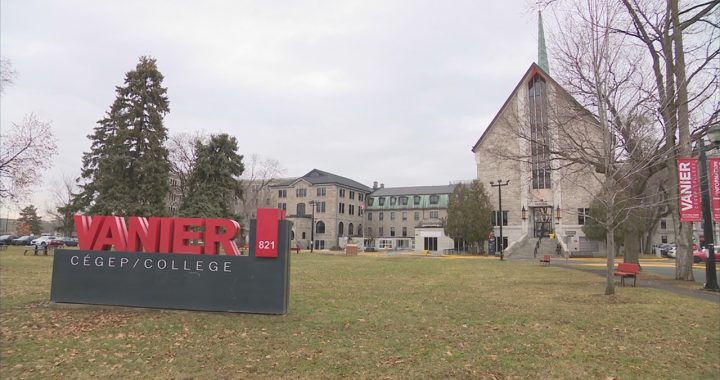
Andrea Fergusson and Brendan Tom sit side-by-side on their bed in the Tla-o-qui-aht village of Opisaht, in the same house where Fergusson gave birth to their youngest son, Felix.
He was the first baby to be born in the remote British Columbia island village in more than 50 years.
The family is sharing his birth story to encourage others to revitalize traditional teachings within reproductive health, understand the natural birthing process, and consider birthing at home.
“You can work with big energy like birthing energy,” Fergusson says, her eyes lighting up.
“It’s life-and-death energy; lightning-and-thunder energy, and it’s very scary if you’re not aware that it’s part of life.”
Fergusson wants birthing parents to listen to their bodies and trust in this natural process.
She believes people have been taught to fear “big energy” within their bodies – such as birth energy – and fight against it.
Accepting, understanding, and working with the fear and uncertainty of pregnancy and childbirth is part of the process, she says, noting she was discouraged by doctors who tried to instill fear in a home birth.
“If you are saying, ‘I feel good about giving birth at home,’ they feel a duty to give you enough worst-case scenarios that [you] might change your mind.”
Tom is a member of the Tla-o-qui-aht Nation. His ancestors have lived in their territories for thousands of years. His village, Opisaht, is the oldest continually inhabited village on the west coast of North America.
Traditionally, babies were born in the community but the practice was suppressed by colonization.
“Before the hospital, everyone birthed at home,” he adds. “There’s certain medicine women that were in charge of helping women with labour.”
‘I lose power in those places’
These days, pregnant people usually leave Opitsaht before their due dates and may give birth in Port Alberni, Nanaimo or Victoria, which is a much longer and more difficult and expensive ordeal.
The village of Opitsaht is a short water taxi ride from Tofino. Tofino is then more than two hours from the nearest birthing hospital in Port Alberni, on the Pacific Rim Highway. Drivers wind through mid-island mountains, often losing cell service on the way to the hospital.
Tom and Fergusson live too far from a hospital for a midwife to assist without risking her licence. So when were planning Felix’s birth, they sought the help of a doula
Doulas are care workers certified to provide physical, emotional, informational and sometimes spiritual support. They often support birthing parents and families pre- and post-partum, as well.
They do not fulfill the same role as a midwife, and are not there to physically deliver the baby.
Early on in the pregnancy, the couple met Erynne Gilpin, a Cree-Métis birth worker and a founding member of the Nesting Doula Collective in Victoria, B.C., when she was visiting Tla-o-qui-aht Tribal Parks.
Fergusson had confidence in her body and even more confidence that she didn’t want to be anywhere near a hospital for the ceremony.
Fergusson, who has mixed British, Irish and Swedish ancestry, says she wasn’t comfortable giving birth in a hospital because of the patriarchal norms that have shaped western health care. Specifically, she feels hospital staff and policies disempower her, and exert control over her body using fear.
She has given birth in a hospital twice before.
“I find that I lose a lot of power in those places. Just the way that they’re set up is against personal, and especially feminine power,” Fergusson explains.
Other doulas the parents spoke with were apprehensive about being the only birth support worker, but Gilpin told the couple she was determined to make the long trip up island and help with the birth.
A scheduling issue with another birth would make it difficult for Gilpin to attend, so the parents were prepared to be on their own.
“I was like…’I’ve got my hunny, we’ll be fine’,” Fergusson remembers. Tom and Fergusson had already birthed one baby outside of the hospital in Port Alberni and felt capable.
Months later, as Felix’s due date fast approached, Gilpin called, just out of assisting another birth, and told them she was driving up to Opitsaht.
“I was like, ‘You don’t have to do that, are you sure?'” says Fergusson. “She drove all the way…that heart matches a mother’s heart.”
‘It’s just so magical’
Gilpin was trusted to create and manage the environment around the birth and assure that Fergusson could focus on the process happening within her. Gilpin massaged Fergusson and helped her stay in the rhythmic breathing of birth.
She ensured everyone in the room was focused on supporting the birth, having them fan Fergusson.
“I could allow my body to go through convulsions, to go through pain,” says Fergusson. “ [I could] just get my 20th-century brain out of the way so that my body can do what it’s always known how to do.”
In the dimly lit room, the voices of Tom’s ancestors sang. They played his father’s and grandfather’s Nuu-chah-nulth songs, and drummed and prepared for Felix’s arrival, working with – not against – the process of birth.

Felix was born on July 2, 2018, in his parent’s living room in Opitsaht. After coaxing from family members and vigorous back rubs, Felix let out a loud cry.
As Fergusson crouched in the birthing pool, Tom pressed his forehead to hers. Tom caught both Felix, and his older brother.
“For me, it was very heartfelt,” says Tom. “The strength that courage it took for her to say yes, let’s birth at home… It was one of the most powerful experiences I’ve ever had.”
“We were so wastefully tired, but all our energy was just with the moment,” adds Fergusson. “I get shivers and I cry every time…it’s just so magical.”
Although the parents had a contingency plan in case there were emergencies – with boats and a helicopter standing by – it never came to that.
Felix’s birth was the first in more than 50 years in Opitsaht.
‘A sacred event’
For many families who live in remote communities, giving birth in a hospital means travelling hours from home with little support.
Indigenous families also face greater risk of having their children apprehended for making the decision to birth without a doctor, nurse or midwife present.
Birthing at home isn’t easy, but those who advocate for more access and support say it can change the experience entirely.
One of Gilpin’s colleagues, doula Tahia Ahmed, spoke with IndigiNews about the significance of home births and how different they can be from hospital births.
“I think a home birth ultimately is different than a hospital birth because I find that birth givers [at home] have more agency and more choice about what happens and who is there,” Ahmed says.
This agency and choice can be especially significant for birthing parents from communities with cultures that are unrecognised or stigmatised by Western medicine.
Ahmed says that one of the primary roles of the doula is to help birth-givers make meaning of the spiritual experience of birth. As such, it’s important for doulas to share the birth giver’s cultural understandings around birth.
“It’s a sacred event and there are different rituals and cultural traditions that go along with the sacred event,” says Ahmed.
“Birth is more similar to death than it is to any other health problems or illness.”
To that end, it was important to both Fergusson and Tom that their son was born in his territory. He was in the presence of ancestors, and they had support from their family and community.
Although no babies were born in Opitsaht since Felix, Tom says the event changed the conversation in their community.
“I find it very encouraging, and hopefully others do and are inspired by our own story,” he says.
“[I hope] it does take off and more people do find the courage to birth at home, to birth in their own nation, to birth in their own village.”
Editor’s note: Erynne Gilpin is the sister of IndigiNews managing editor Emilee Gilpin.











